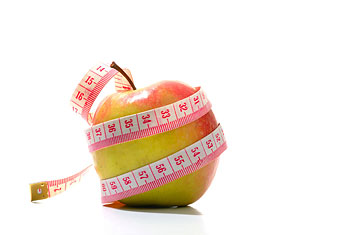
With 23 million South Beach diet books sold, Dr. Arthur Agatston, its creator, has entered the pantheon of famous American diet docs. His new book, The South Beach Diet Supercharged: Faster Weight Loss and Better Health for Life, has already jumped on the bestsellers list. TIME reporter Andrea Sachs reached Agatston in his Miami office:
TIME: Did you know that your diet was going to be such a success?
Dr. Arthur Agatston; No. No. It all really happened accidentally. I never set out to write a diet book. My interest is as a clinical and academic cardiologist with an interest in prevention.
Why are Americans gaining so much weight?
Well, it's a combination of our nutrition and our lack of exercise, which is almost a toxic lifestyle.
Tell me about your new book. How is it different?
In one sense it's a celebration of the initial program: good fats, good carbs, lean sources of protein, plenty of fiber. Those principles have not changed. But there's been a continuing march of medical science. We've learned a lot from a practical point of view about what our millions of readers wanted as well as our Web site, where we get a lot of feedback, as well as from my patients. The exercise program is new and exciting.
What's that about?
We have a chapter on boomeritis, including some of my stories, the various baby-boomer injuries I've had. Many days, even though I'm a cardiologist, I feel more like an orthopedist in my practice because we always ask about how people are exercising, and they have a lot of complaints. We're sitting slumped over a computer all day and not doing normal exercise. In previous generations when we were digging ditches or pitching hay, there was a type of what we would now call functional exercise where we're exercising the whole body. And that's what prevented low back and knee and hip and all the things we're seeing today. So we talk about the importance of core exercise and give a program that you can do at home and in the office, not requiring any equipment.
The other very exciting addition is the interval training program. Dr. Joe Signorelli from the University of Miami, the senior exercise physiologist there, taught me about interval exercise — which I had always heard of for elite athletes. I knew that marathoners and cyclists and swimmers did episodes of high-intensity, not just volume of exercise, even though their events were endurance events, and that that improved their fitness and their performance. I didn't appreciate how it could be applied to the rest of us.
USA Today reported that several top exercise researchers criticized the interval part of the program, saying that the book exaggerated the benefit.
I would argue that from a recent article in the International Journal of Obesity, we probably understated the benefits. All you have to do, frankly, is look up interval exercise on the Internet. We didn't invent that. The evidence is absolutely overwhelming. They took issue with one point called after-burn, which they said we overstated. I don't think we overstated it. The benefit that you burn more calories in a shorter period of time is absolutely clear.
Your HOPS program [Healthy Options in Public Schools] works with overweight kids as well.
We go into elementary schools and we literally change what's on the menu in the cafeterias and what's given for breakfast. We've been able to change the progression of weight gain and blood pressure, and we're looking at various other things. We think it may even help academic performances as well. But the thing is, kids are eating often pure starch and transfat, bad fat diets. Starch, sugar, and bad fats. They are not exercising the way kids used to exercise. The combination is a disaster, and it's not just cosmetic. I feel very strongly that a lot of academic and behavior problems are because of exaggerated swings in blood sugar that these kids are having. It's not being diagnosed. Teachers know. Teachers talk about the sugar high that kids get after lunch. They'll be bouncing off the walls and then they fall asleep.
Why do so many people regain the weight they've lost?
People think of a diet as a diet, a short-term diet, rather than lifestyle, so they'll lose weight. When they hit their goal, they go back to the way they were eating before, and that's exactly why we emphasize the three phases and the transition from phase one to phase two. We emphasize this more and give more help and guidelines in this book. We have any number of people who have kept weight off over many, many years, and everybody will wax and wane some. But the other is regular exercise.
Do you exercise?
I do on the elliptical trainer three days a week. I did it this morning. I do it for 20 to 25 minutes.
Do you ever diet yourself?
I follow the lifestyle very much, but when I travel there are certainly times when I put on weight. Generally if I'm in my routine in Miami, I do very well. When I travel, I don't do as well, and so I'll occasionally go back to the strict first phase if I feel my cravings are returning. But otherwise I'm just making the most healthy choices. I maximize whole fruits, vegetables, whole grains, lean protein, fiber, particularly fish. But if I'm at an affair or whatever, I'll indulge in a dessert.
Does it ever bother you having every one watch what you eat?
Sometimes a little bit. My wife always claims they're tougher on her than me.
